Careers In Culture
Writing and Publishing - What You Need to Do
Career Routes
On this page:
Moving toward your words career
So you're interested in a career in writing and publishing. Perhaps you'd like to be a novelist or poet, a freelance writer or editor. Perhaps you want to work in a publishing house or develop expertise in corporate communications or technical writing. Or maybe you love multimedia products and want to get involved in computer games or educational tools. Whatever you decide, you've chosen a field with many occupations and career routes. Most people work in different areas within a company, move from company to company, or move in and out of freelance work. There's no set of fixed steps in a writing and publishing career.
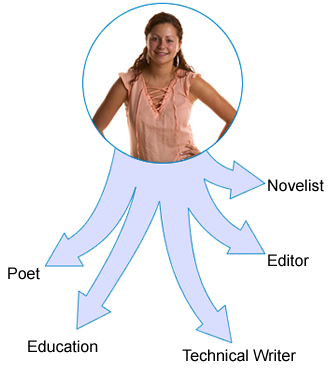
People come to word careers from a wide variety of educational backgrounds, and their career routes are often unique, depending on the type of work they do and the opportunities they find. However, for people who want to work in this field, there are four “musts”: excellent language skills, a college or university education, computer skills and hands-on experience.
Excellent Language Skills
How strong are your language skills? Can you communicate effectively when you speak and write? Do you continually add to your vocabulary by learning new words? Can you write grammatically and punctuate accurately? If you are pursuing a career in writing and publishing, excellent language and writing skills are paramount. And you must continually strive for improvement. Adopt a life-long learning attitude to maintain the edge in your creative and technical writing. Read as much as you can and take language and literature courses. Try your hand at different types of writing. Keep a journal, try poetry, write an article, or work on a short story. Are you still in school? Then think of your school essays as opportunities to sharpen your skill. The best way to be a writer is to “do it”.
A College or University Education
Your high school diploma is a good start towards a career in writing and publishing, but generally, it will not be enough to find work. Most employers are looking for people with college diplomas or university degrees. You can major in English, but you can also major in many other fields and still find your way into a word career. What’s important about your education is the knowledge you gain about the world and the learning skills you develop during your studies.
Hone Computer Skills
No matter what kind of writing or publishing career you are interested in, computers have become an essential tool. Writers benefit from computerized accounting skills to track their earnings and expenses. Nearly all careers in this discipline rely on the Internet – for example, e-mail, browsing, web design and e-commerce – to research, develop, market and promote their products. Sophisticated electronic tools are essential in many aspects of this profession. Improve your employability by increasing your computer skills whenever you have a chance.

Give Your Career a Boost!
Many people in the writing and publishing professions find that having a certificate, diploma or degree in a writing and publishing specialty has helped them find work. Check your community college, local university, publishing and writers’ organizations to see if they offer workshops, courses and/or programs in:
- Creative writing
- Desktop publishing
- Marketing
- Public relations
- Technical writing
- Multimedia
- Printing
- Book publishing
- Magazine publishing
- Web design
- Journalism
Hands-on experience
Managers in this field look for people with practical knowledge in writing, editing and publishing. Wondering how you can get hands-on experience? Use the following exercise to see how you can expand your practical skills and gain valuable contacts.
The "I Want Experience" Checklist
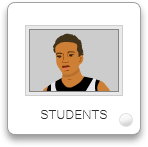 |
If I'm a student, I could...
|
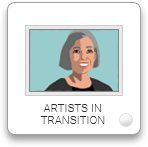 |
If I'm an artist in transition, I could...
|
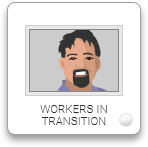 |
If I'm a worker in transition, I could...
|
Learning Paths
There are many routes to entering a career in writing and publishing. Here are some of the paths you might take. Remember that you can get a university degree in almost any field and then give your writing and publishing career a boost with a college certificate or diploma in a specialized program.
Learning Paths
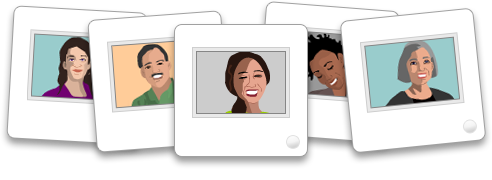
- Essayist
- Fiction writer
- Non-fiction author
- Playwright
- Poet
- Screenwriter
- Teacher of writing
- Assistant editor
- Copy-editor
- Editor
- Proofreader
- Terminologist
- Translator
- Project team leader
- Technical terminologist
- Technical writer/editor
- Editor-in-chief
- Managing editor
- Researcher
- Senior editor
- Art director
- Publisher
- Book production designer
- Bookseller
- Business reporter
- Business writer
- Corporate communicator
- Marketing manager
- Promotions manager
- Sales representative
- E-commerce manager
- Course designer/Instructional designer/content designer
- Multimedia scriptwriter
- Project leader/creative director
- Web designer
- Graphic designer
- Instructional multimedia designer
- Copy-editor
- Corporate communicator
- Journalist
- Newsletter writer/editor
- Newspaper editor
- Newspaper publisher
- Proofreader
- Communications strategist
- Public relations officer/Communications officer/Corporate communicator
- sales and promotions manager
- Senior public relations officer/communications officer
- Editor, textbooks
- Science/computer writer or journalist
- Technical writer/editor
- Terminologist
Since there's a good change you will be working freelance at some time during your writing and publishing career, you will have to take responsibility for your own learning and follow your own plan for upgrading your skills and knowledge.
Want to learn more about education programs and schools? Talk to:
- A teacher or career/guidance counsellor.
- A local librarian.
- Arts organizations in your community.
- The professional organizations listed on this website